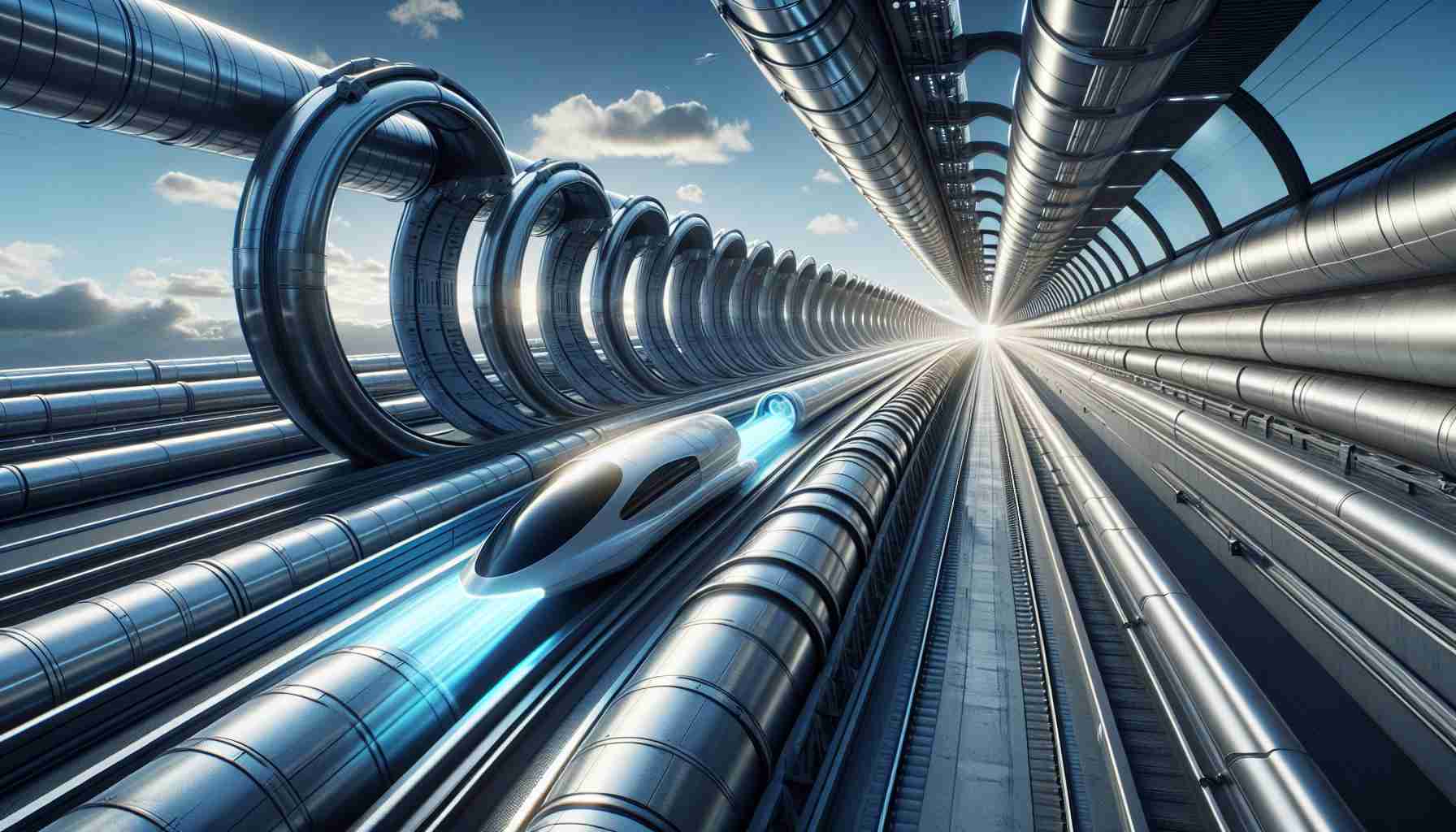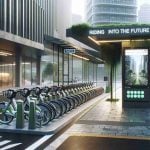The transportation sector is undergoing a radical transformation, thanks to the revolutionary developments in hyperloop technology. This game-changing innovation has the potential to disrupt traditional modes of travel and redefine our perception of transportation.
Hyperloop, a concept first proposed by Elon Musk in 2013, involves a system of high-speed pods propelled through near-vacuum tubes. These pods would travel at unprecedented speeds, reaching up to 700 miles per hour (1100 kilometers per hour). The idea behind hyperloop technology is to create a transportation system that is faster, more efficient, and environmentally friendly than traditional methods.
However, the potential of hyperloop technology extends far beyond its impressive speed. Imagine a future where commuting between cities becomes a seamless and stress-free experience. Hyperloop networks could connect major urban centers, enabling people to travel significant distances in a matter of minutes. This would not only reduce travel times but also open up new possibilities for work, education, and leisure.
Moreover, hyperloop technology has the potential to minimize the environmental impact of transportation. By utilizing renewable energy sources, such as solar power, hyperloop systems can operate with minimal carbon emissions. This clean and sustainable approach to transportation could significantly contribute to the global efforts to combat climate change.
Though still in its early stages of development, hyperloop technology has garnered significant interest from both the public and private sectors. Several companies around the world are actively pursuing the realization of hyperloop networks, conducting feasibility studies, and constructing test tracks. This notable interest and investment indicate that hyperloop technology is more than just a futuristic concept; it is slowly becoming a tangible reality.
In conclusion, the potential of hyperloop technology to revolutionize the way we travel is both exciting and promising. With its unprecedented speed, seamless connectivity, and environmental benefits, hyperloop systems have the power to transform our transportation landscape. As we move forward, it is crucial to continue supporting research and development efforts to unlock the full potential of this groundbreaking innovation.
The transportation industry is poised for a major transformation with the development of hyperloop technology. This innovative concept, first proposed by Elon Musk in 2013, involves the use of high-speed pods propelled through near-vacuum tubes. With speeds of up to 700 miles per hour (1100 kilometers per hour), hyperloop technology promises to revolutionize traditional modes of travel.
The market forecast for hyperloop technology is highly promising. According to a report by Allied Market Research, the global hyperloop technology market is projected to reach a value of $6.6 billion by 2026, growing at a CAGR of 37.7% during the forecast period. This rapid growth is attributed to the increasing investment in research and development, the focus on developing sustainable transportation solutions, and the demand for faster and more efficient modes of travel.
One of the key issues related to hyperloop technology is the need for substantial infrastructure development. Building the extensive network of tubes required for hyperloop systems can be a costly and complex undertaking. Furthermore, securing the necessary land rights and regulatory approvals poses a significant challenge. However, several companies are actively working on overcoming these obstacles, with projects underway in various parts of the world.
The safety and security of hyperloop technology are also areas of concern. The high speeds at which pods travel require stringent safety measures to ensure passenger well-being. Additionally, the security of the infrastructure and the prevention of any unauthorized access or potential accidents are critical considerations. Research and development efforts in this area are focused on developing robust safety systems and protocols to address these concerns.
To delve deeper into the topic, you can explore various sources such as the official website of Virgin Hyperloop, one of the leading companies in the industry. Visit their website at Virgin Hyperloop.







